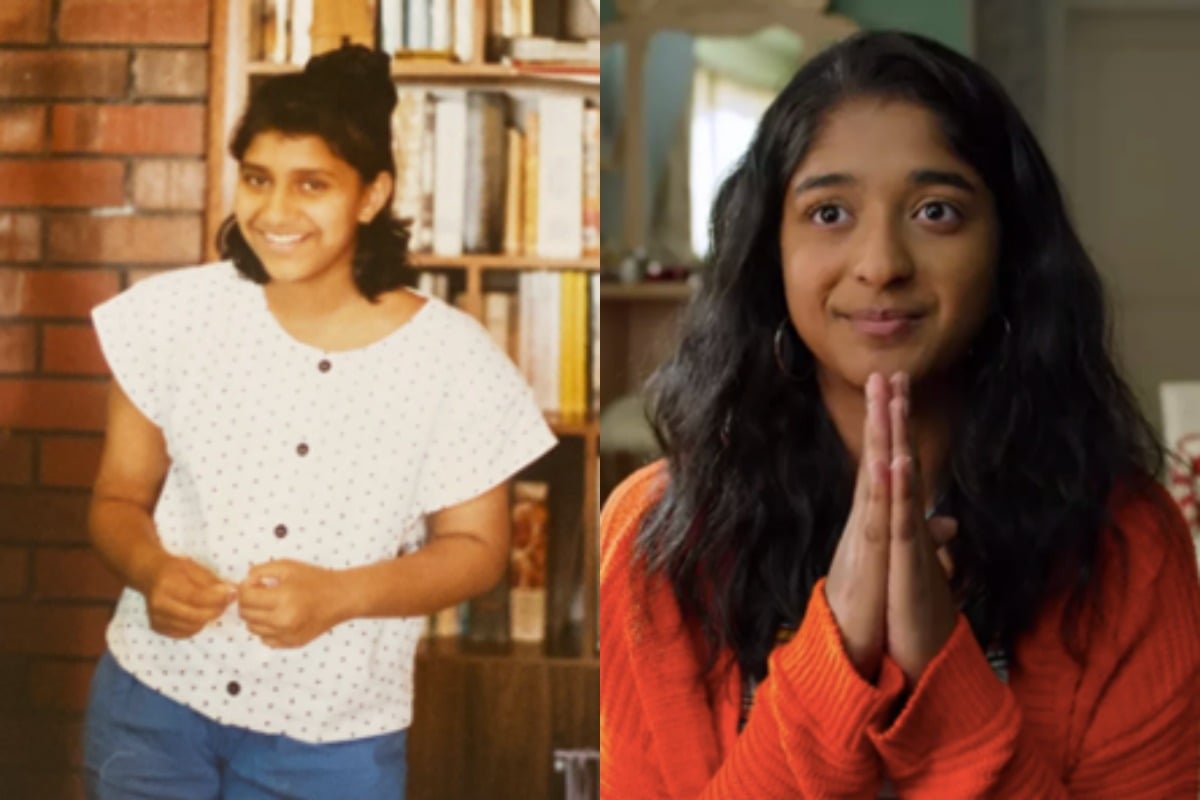
Never have I ever seen a brown person on TV.
That’s what I would have said decades ago, growing up in Australia. And it’s something that this generation of young Indian women won’t have to say, thanks to Mindy Kaling’s Netflix show, Never Have I Ever.
The series is about Devi Vishwakumar, an Indian-American teen in California, her immigrant parents, and how she’s trying to find her place in the world. It’s really a show about teen angst – think Dawson’s Creek – except, instead of seeing a bunch of good-looking white kids, the star is a brown, Hindu, teenager.
Which is what makes the show utterly ground-breaking.
Watch: The trailer for Netflix show, Never Have I Ever. Post continues below.
It’s hard to believe there was a time when there were no brown people on TV, but there was. What it meant for me is I grew up thinking that only beautiful skinny white people mattered and would be heard.
I grew up in a world of Nicole Kidmans and Kate Mosses and it was obvious to me I would never be as valued in the mainstream as them. Nor would my cultural heritage.
Luckily, I had my dad who adored me and called me beautiful all the time (the poor delusional man), and so even though I scrubbed my skin in the shower for hours to make it whiter, less different, I knew I was loved, and never felt ugly. But I did want to fit in.